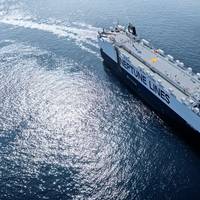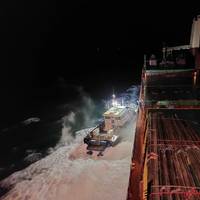HD Hyundai Marine Solution Partners with Accelleron on Ship Engine Optimization

HD Hyundai Marine Solution has signed an agreement with Greek operator Neptune Lines Shipping and Managing Enterprises SA to provide Engine Part Load Optimization (EPLO) services for four car carriers.HD Hyundai Marine Solution partnered with Accelleron to launch the EPLO service, receiving the first order for one ship in October last year.Most marine engines are built to provide optimal fuel efficiency and performance for the speed and environment for which the ship is designed.
The "KISS Principle" & Managing, Measuring Ship Emissions

HydroComp is a well-established, small engineering firm focused on hydrodynamic and propulsion system simulation, providing design tools for engineers and naval architects to focus on vessel performance, including emissions. Don MacPherson, HydroComp’s long-tenured Technical Director, discusses the impacts of tightening emissions regulations, with insights on maximizing new vessel designs and refits.Don, maritime has been in the crosshairs of regulators to reduce emissions. What do you see as the top new regulatory issues that are impacting ship and boat design…
Oslo Bulk Adopts BERG Propulsion for EEXI Compliance

Bulkship Management, the Oslo-based ship manager with a specialty in geared vessels, has confirmed a significant contract to implement Berg Propulsion’s ‘EPL for EEXI’ power limitation solution across 10 ships trading in US Gulf and Caribbean waters.Submitted to the class for approval, the Berg Engine Power Limitation solution is of particular benefit to the many ships whose performance requires only moderate adjustment to meet IMO Energy Efficiency for eXisting ships Index (EEXI)…
Energy Efficiency Indices: What You Need to Know

Decarbonization is the greatest challenge facing the shipping industry today.The effort to reduce emissions and environmental impact extends to all sectors and players and will leave no one in the industry unaffected.The IMO’s effort to decarbonise shipping is a numbers game. The goal, as stipulated in the Initial IMO GHG Strategy, is to reduce the average CO2 emissions per transport work by at least 40% by 2030, compared to 2008 levels., and to pursue a 70% reduction by 2050.The introduction of the EEXI is part of the IMO’s latest attempt to achieve this goal.









